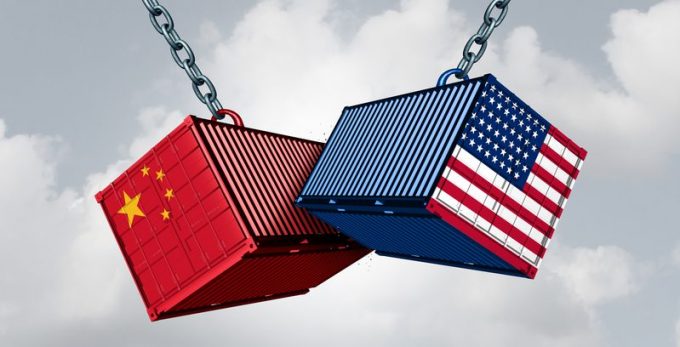CPATPP may save UK exporters from Canada free trade deal failure
For UK automotive manufacturers, a new trade route to Canada beckons – via the Pacific. Not ...

US agricultural shippers are considering diverting or bringing back shipments hit by new tariffs which are already ‘on the water’.
The latest salvo in what looks set to be a trade war has seen the US trade representative announce $12.5bn-worth of proposed tariffs on a wide variety of imports from China, including semi-conductors, car and aircraft parts.
The move followed Monday’s announcement by China that it had imposed $3bn-worth of duties on goods including pork, fruit and steel.
And this morning, China hit back with plans to introduce 25% tariffs on key exports, including cars, aircraft and beef.
The tariffs could disrupt transport. Nut producer Jim Zion, managing partner at Meridian Growers in Fresno, California, told National Public Radio he was considering diverting shipments already en route if he could not reach a deal with the buyer.
“We will have to ask our buyers how they would like to handle the additional cost, because obviously this wasn’t factored in when we made the original contract.
“Either we’re going to have to give them a discount to cover this additional cost, or, if we can’t come up with an agreement, we will divert those containers to another destination that doesn’t have a tariff. If we can’t do that, we’ll have to bring them back. Regardless, this will definitely cost us some money.
“Honestly, the next 24 hours is going to be critical. We have containers arriving in Asia within the next seven days, so I’ve got to make some decisions.”
He said he expected additional costs of $2,000 to divert a container or up to $10,000 to bring shipments back to the US.
Meanwhile, the US Agricultural Transportation Coalition (ATG) has told members they may be able to cancel their shipping contracts under the force majeure clause.
A note to members stated: “To say that this will disrupt the US agriculture and forest products export shipping supply chain is a gross understatement. And the threat of more retaliation by China looms large…
“Force majeure clauses in your ocean shipping contracts often allow the carrier or shipper to be excused from contract obligations in the case of ‘government restrictions’.”
ATG believes shippers may not be able to meet their booked capacity levels and could be hit by fees for non-fulfilment from container lines. It argues that the tariffs do come under “governmental restrictions” and the force majeure clause could thus allow shippers out of their contracts.
The tariffs imposed by China could also affect air freight, with many fresh fruit exports from the US hit by 15% tariffs, including cherries and berries.
Last year, China imported 102,000 tons of cherries, of which 27,030 tons came from the US.
Comment on this article